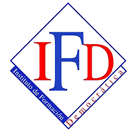|
Information for Teachers
The first thing we want you to
know is that Teen Voices of Democracy is a not-for-profit
educational project sponsored by the Institute of Democratic Education.
Our purpose is to offer young
people ... all of them "citizen journalists" ... the opportunity to write
and to develop their creative-thinking skills, using the general themes of
democracy and the importance of voting.
Bill Moyers, television
commentator and former White House press secretary said, "The quality of
democracy and the quality of journalism are deeply entwined."
Comprehensive Curriculum
Guide
The National Student/Parent Mock
Election plans to publish a comprehensive Teacher's Guide to the 2012 Presidential Mock
Election.
Included
in that curriculum guide will be suggestions on how to prepare students to
consider four major national issues expected to be debated during the
political campaigns. Student writing about those issues will be posted on
the Teen Voices of Democracy website.
The Mock Election
The link between Teen Voices of
Democracy and the
National Student/Parent Mock Election is strong.
One of our
goals is to encourage young people to explore social and political issues
confronting our nation during the months leading up to the 2012 Presidential election.
All of this leads to the 2012 Mock Election and the voting participation of every student.
State Standards
All states include in their
mandatory curriculum standards specific educational goals such as the ones
Teen Voices embraces. Click here to read excerpts from one state's standards for
teaching civics.
Because of the similarity of
state-mandated educational mandates and the goals of Teen Voices of
Democracy, we hope teachers
will feel
comfortable encouraging middle school and high school students to
participate in this national endeavor.
The websites and organizations
listed in the right column of this page offer a wealth of information
students can use as they develop essays, articles, videos, "tweets," and
other vehicles of expression.
You may find the section on
curriculum materials helpful.
There is no charge for students,
teachers or schools to participate. Teen Voices of Democracy is funded by grants and is operated
by volunteer professional journalists who share our views about democracy
and the importance of voter education.
Technology
The main way for students to
participate is to send us their comments, sometimes as short as one sentence.
Students' comments must first be published on their own personal blogs or websites
where they have posted articles and essays.
They are encouraged use their mobile phones and computers
to send links to articles they have written. There is a "Send Article" button on our Teen Voices iPhone app and on our app for Android smartphones (www.teenvoicesmobile.org).
Civics Curriculum
Here is a sample state
curriculum guide that illustrates how Teen Voices of Democracy can help teachers meet their
state standards:
NEW JERSEY STANDARD 6.2 (Civics)
- All
students will know, understand and appreciate the values and principles of
American democracy and the rights, responsibilities, and roles of a citizen
in the nation and the world.
Discuss how participation in civic and political life can contribute to the
attainment of individual and public good.
Analyze how public opinion is measured and used in public debate (e.g.,
electronic polling, focus groups, Gallup polls, newspaper and television
polls) and how public opinion can be influenced by the government and the
media.
Discuss how citizens can participate in the political process at the local,
state, or national level (e.g., registering to vote, voting, attending
meetings, contacting a representative, demonstrating, petitions, boycotting)
and analyze how these forms of political participation influence public
policy.
Analyze the impact of communication networks and technology on global
issues.
Analyze how the media present cultural stereotypes and images and discuss
how this impacts beliefs and behaviors.
Content
published on the Teen Voices of Democracy is based on work supported by a
grant from the U.S. Election Assistance Commission (EAC). Any opinion,
findings, conclusions or recommendations expressed on this Web site are
those of the author and do not necessarily reflect the views of the EAC or
the Institute of Democratic Education.
Youth correspondents are encouraged to freely express their opinions and
must abide by the guidelines posted on this Web site. Professional editors will monitor
all submissions to assure they follow recognized journalistic standards and ethical codes
before content appears on this Web site.
| 




